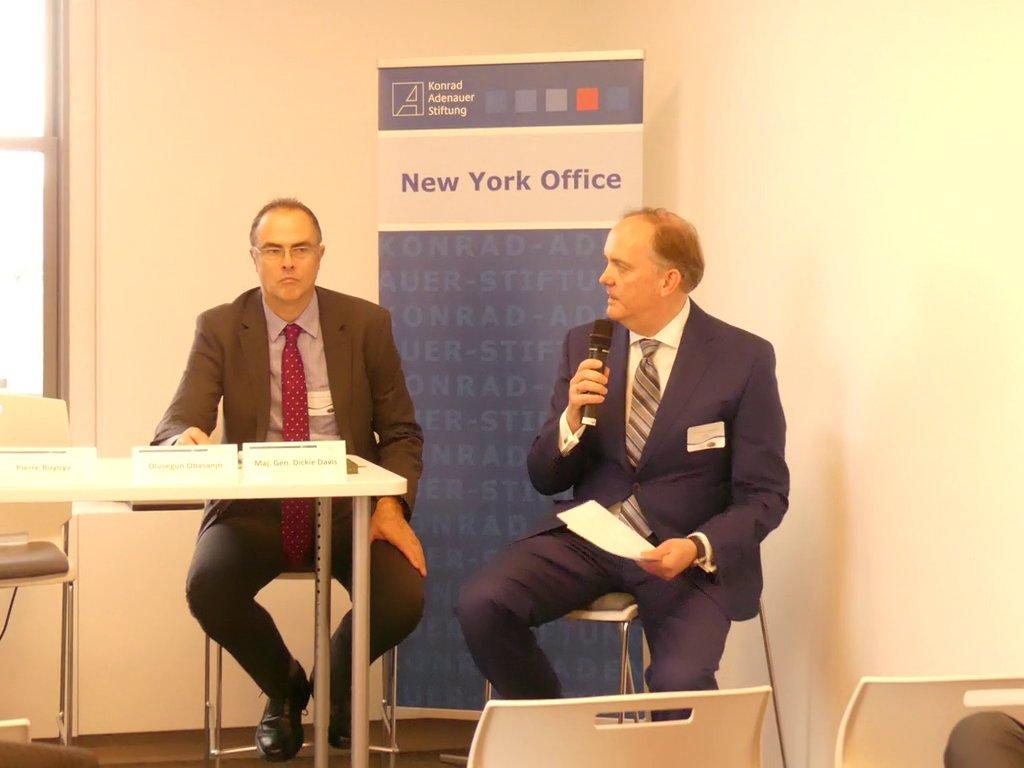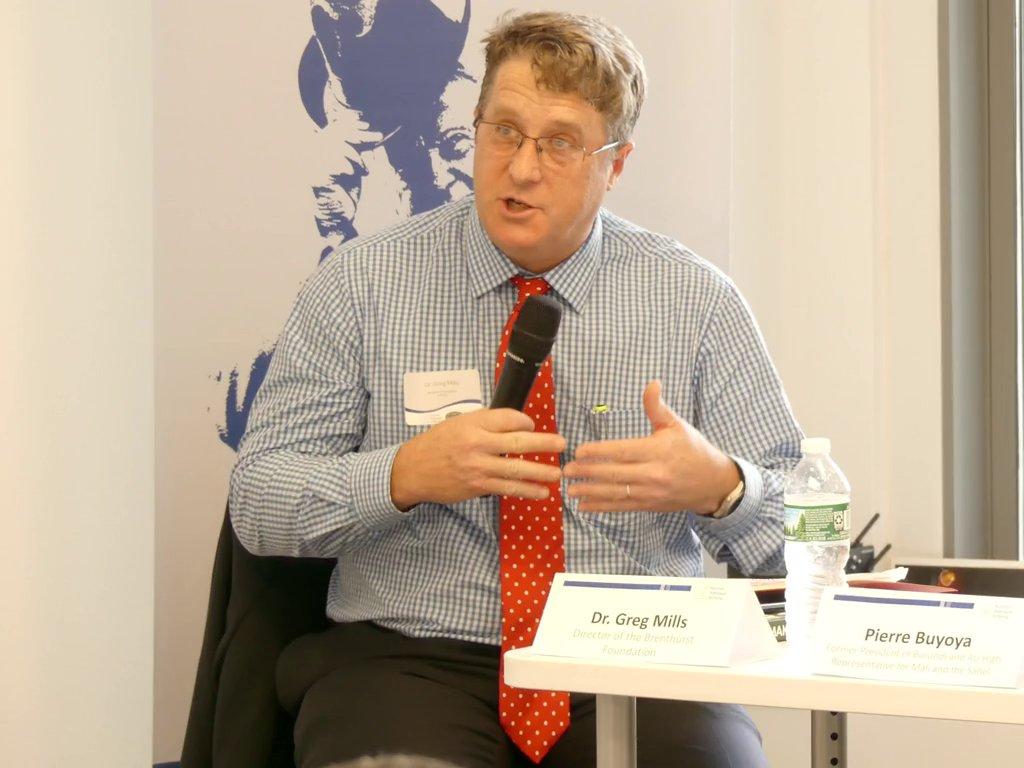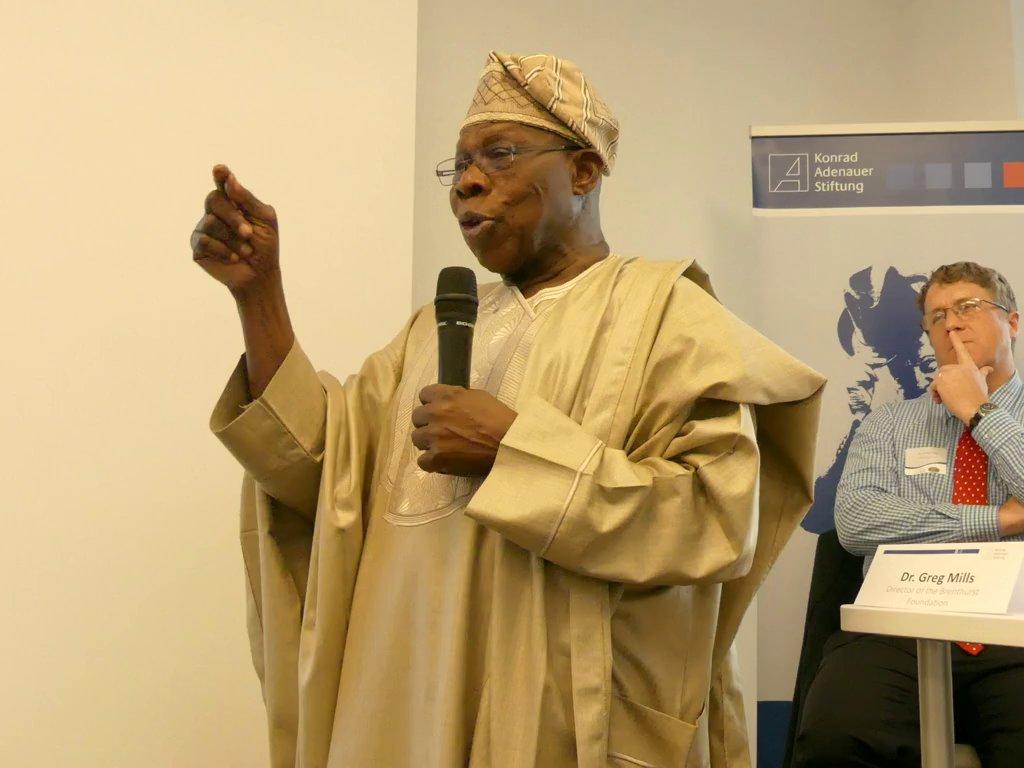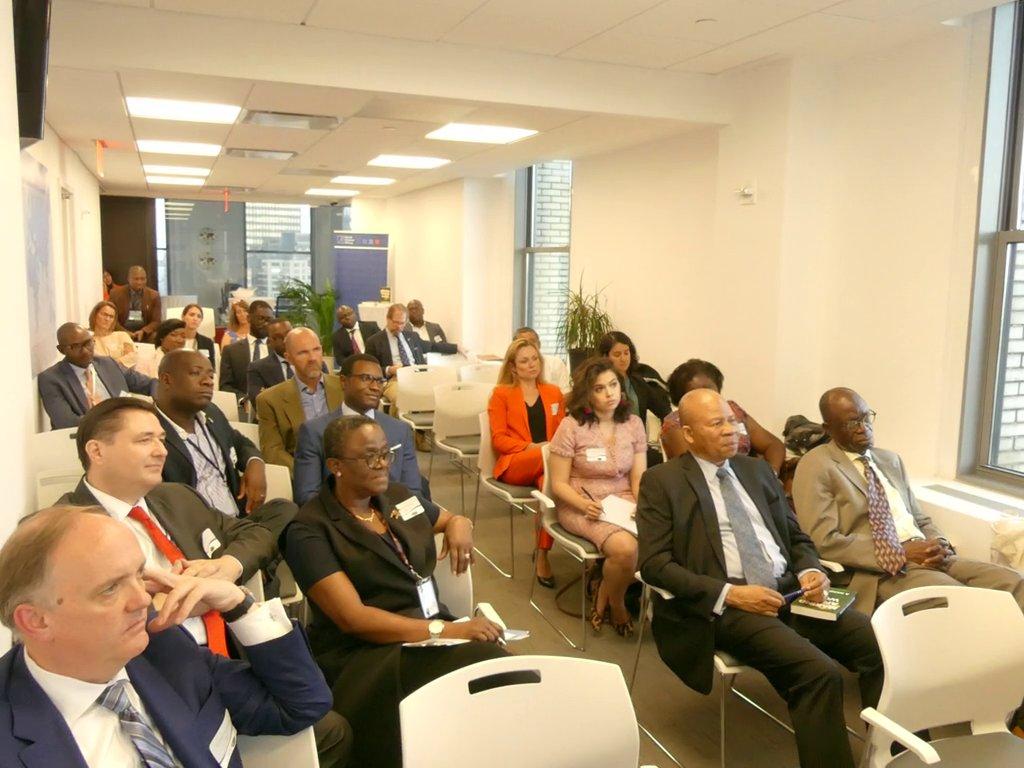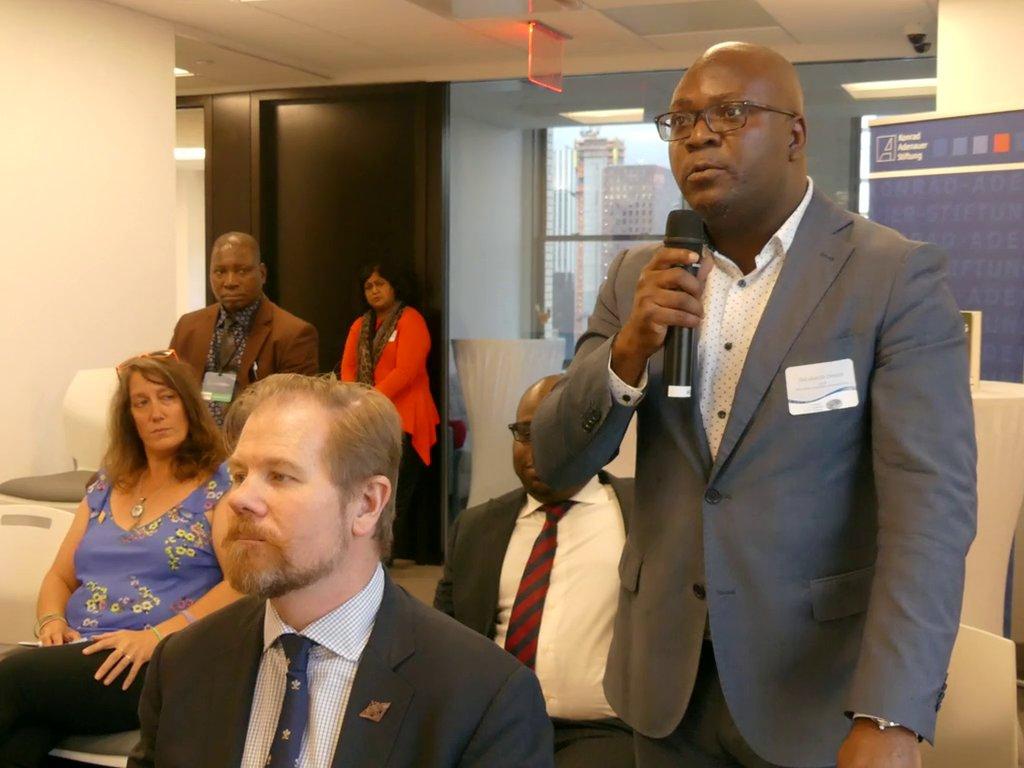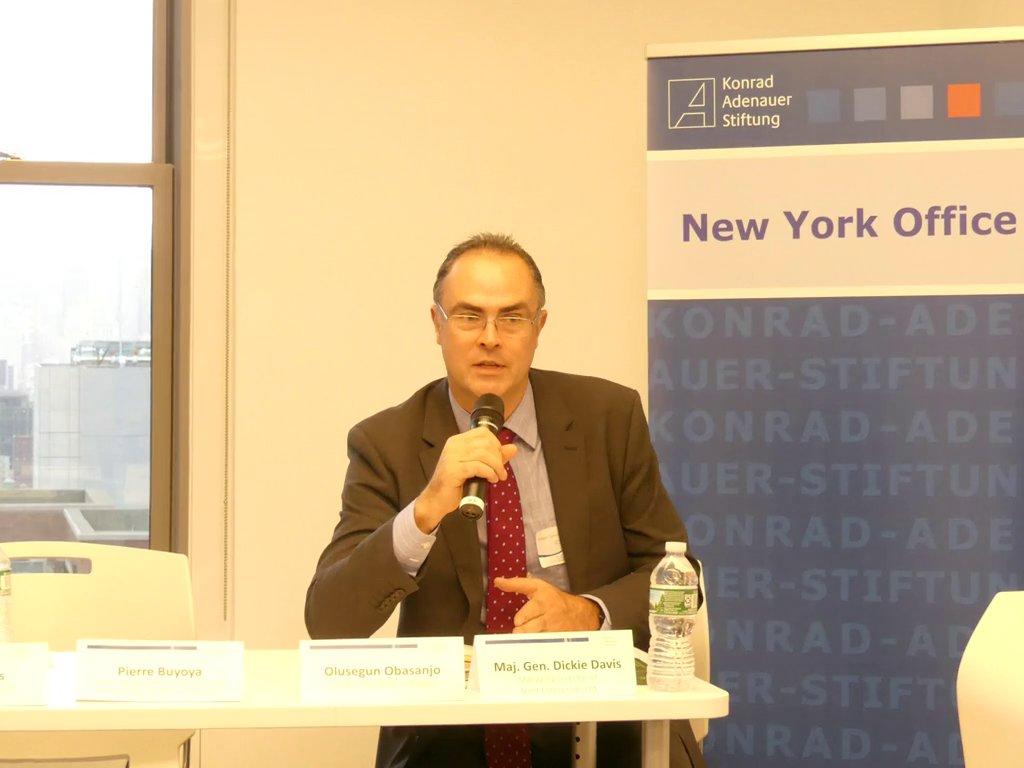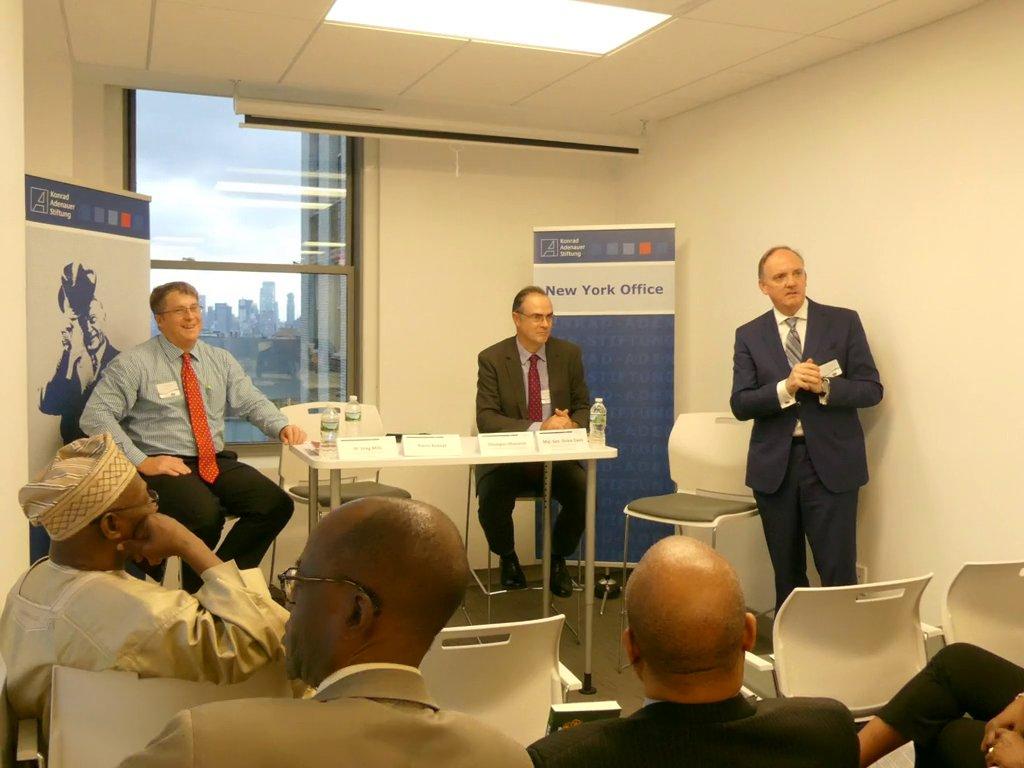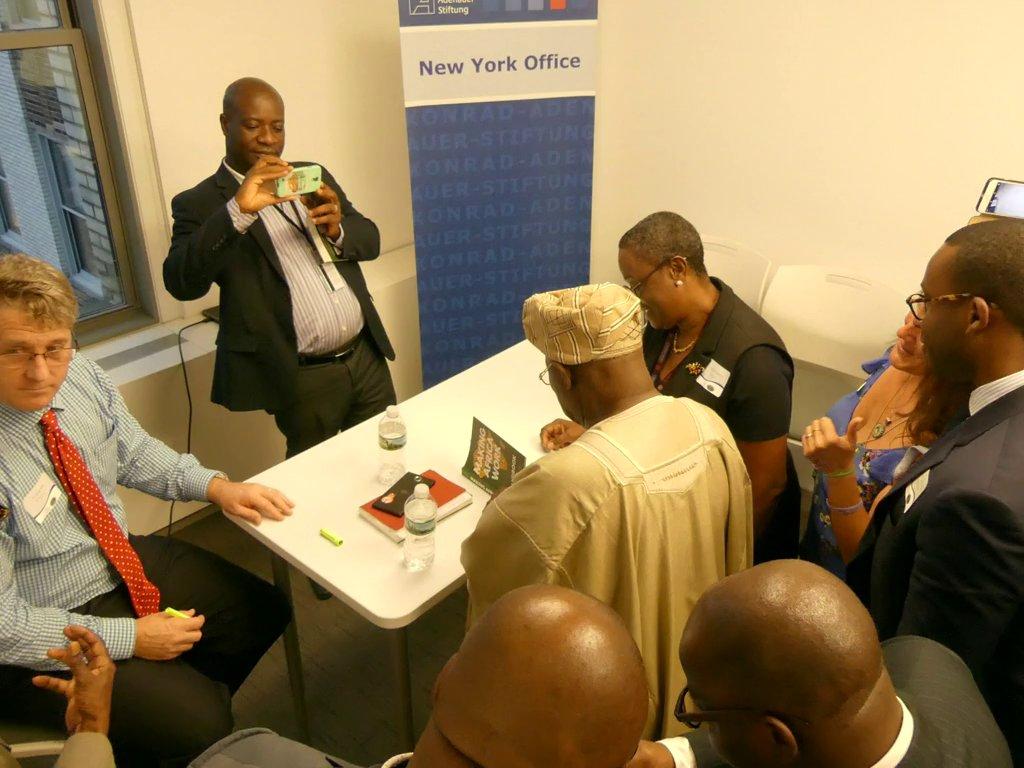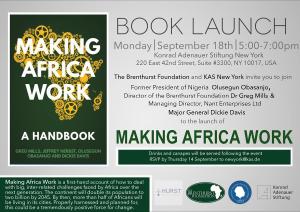Event reports
In cooperation with the Brenthurst Foundation, the Konrad-Adenauer-Stiftung hosted a book launch for “Making Africa Work”, co-authored by former President of Nigeria - Olusegun Obasanjo, Director of the Brenthurst Foundation - Dr. Greg Mills, Managing Director of Nant Enterprises Ltd - Major General Dickie Davis as well as scholar and former President of Colgate University - Jeffrey Herbst. The book launch was visited by officials from a diverse set of UN-organizations, civil society institutions and Permanent Missions to the UN.
H.E. Chief Obasanjo, Dr. Mills and MG Davis, all of whom were present, underlined that Africa urgently needs to end its business as usual approach. They explained that the book does not dwell on the past and is short on history but instead long on the future. As an alternative to naming and shaming the focus of their work lies on the way forward. In order to spread the word throughout all of Africa, the book recently launched in its French and Arabic versions.
“Making Africa Work” is based on the assumption that Africa will face three key inter-related challenges over the next generation:
1)The continent will double its population to two billion by 2050.
2)80% of this population increase will take place in cities, bringing the number of people residing in urban areas to half of Africa’s overall population.
3)With US$45 billion out of US$1.75 trillion, Africa’s overall share of global capital flows remains far too low.
The authors estimate, that in order to fill the needs of the only continent in the world whose population is getting younger, 20 million new jobs would have to be created annually. With many African countries having broad policy agendas instead of a focused national strategy for the future, implementing a course of action has proven to be difficult. The authors identified that one inherent precondition needed for growth and progress lies in a countries form of government, highlighting the positive link between democracy and development.
During the research process for “Making Africa Work” the authors conducted over 100 interviews to identify international best-practices, not only in Africa but beyond. The book thereby delineates different sectors in Africa and recommends priorities that can be followed. Although the authors acknowledge Africa’s diversity and emphasized that their book does not follow the notion of a “one size fits all” approach, they recommend a number of key factors which will prove vital in the sustainable development effort of any country. These include: macroeconomic orderliness, adherence to the constitution, commitment to the rule of law, offering democratic space, policy predictability, accountable leadership and a convincing narrative for the future.
While the book suggests African nations should identify a clear set of actions; the authors also emphasized the need to pinpoint policy steps which will not be implemented. Only then, they agreed, can the full force of a country’s resources be invested into priority measures that will guarantee long-term sustainable development.




